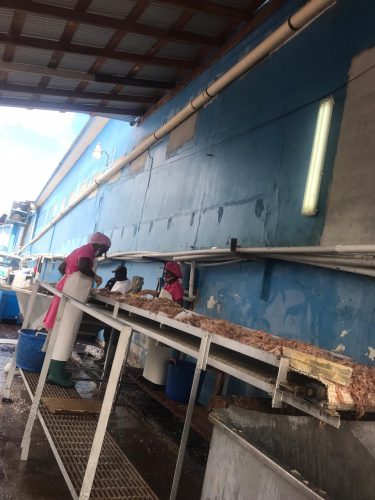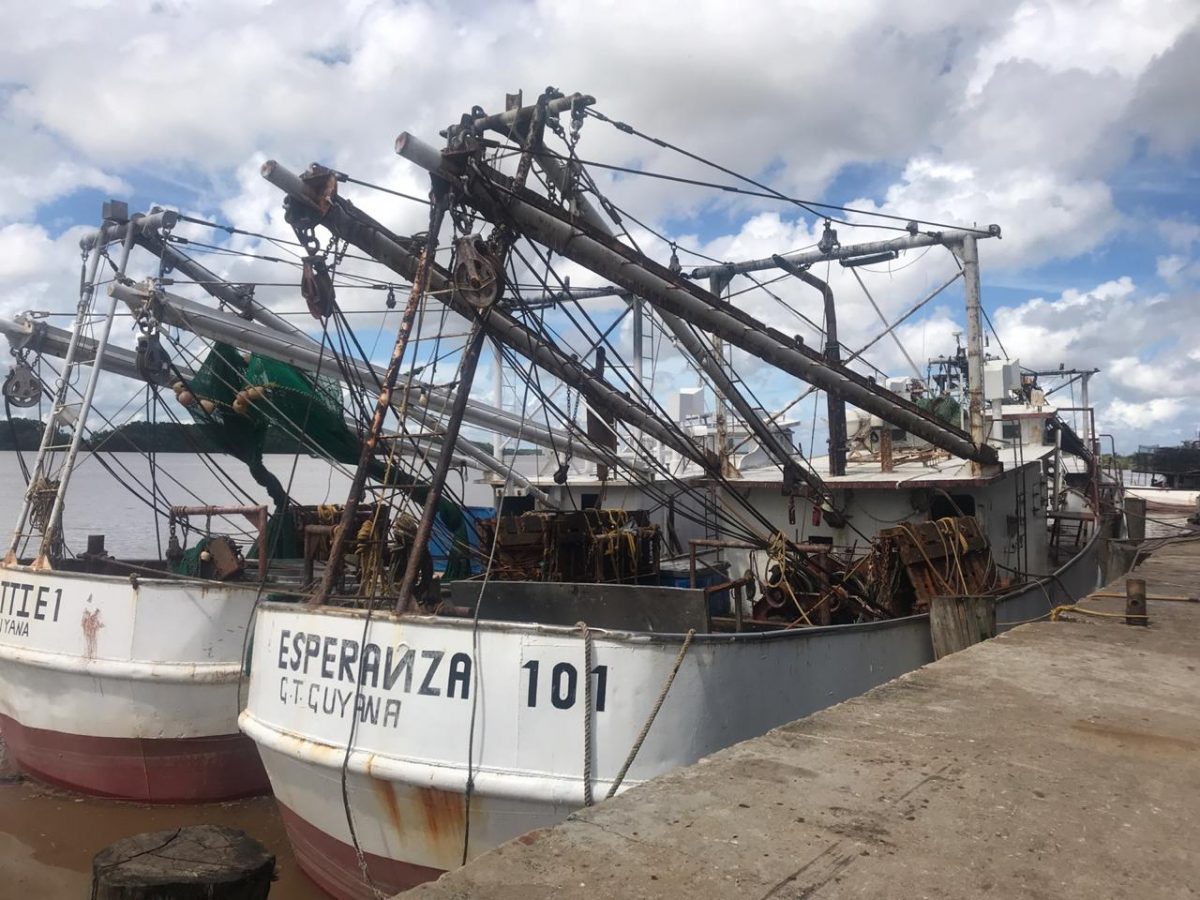Trawler operators have upped the pressure on the PPP/C government to explain the issuing of two new trawling licences which they say could decimate their businesses.
They say the two licences clandestinely issued by the Ministry of Agriculture constitute a threat to the sustainability of the local seabob shrimp industry which has already seen a dramatic decline in harvesting numbers.
The Guyana Association of Trawler Owners and Seafood Processors (GATOSP), which brought the issue to the fore has stated that the issuance of the licences is a transgression of the agreements they have with the ministry and the international Marine Stewardship Council (MSC) for sustainable fishing.

Minister of Agriculture Zulfikar Mustapha has told Stabroek News that he is currently gathering all the necessary information and will make a statement shortly on the issue. He had said too that he will be meeting with GATOSP soon. On Friday last, the association dispatched a second letter seeking an explanation from the Minister over the issuance of the licences.
This newspaper understands that the licences were given to a local company which is financed by a large Chinese company.
Two of the three operators, Noble House Sea-foods and Gopie Invest-ments Inc, yesterday ex-plained that new trawlers operating in the fishing zone will decimate their production which they have observed to be heading downward.
They made it clear that every effort to ensure and maintain operations in a sustainable environment will have no standing and their certification from the MSC is at risk of being revoked followed by the inevitable loss of markets.
Currently there are 87 trawler vessels operating in the Guyana seabob fishing zones. The zones are located north of Region One, offshore Georgetown, and in the Corentyne River.
But while the operators and processors are concerned over the out-of-the-blue issuance of the licences, they believe that they should have been given first preference to reapply since they had cut back operations by 30%.
Managing Director of Gopie Investments Inc, Raoul Gopie, yesterday told Stabroek News that the issuance of the licences sends the wrong message to operators as he noted they have voluntarily given up licences to ensure there is sustainable harvesting.
Affects us
“…it affects us because it creates additional pressure on the resources and from research, the evidence shows we are a little bit overfishing but we are still sustainable … We are harvesting exactly what is being reproduced. Should something go wrong and that could tip quickly, and negatively affect the whole sector,” Gopie explained when asked if the new licences will have an impact on operations.
He pointed out further that they should have been operating in a surplus zone but over the last four years they have noticed a decline in their harvest. This new phenomenon, he said, has no explanation as no recent study has been commissioned to investigate what is happening 40 miles offshore Guyana.
He stressed further that while they don’t see licensing itself as a problem, catching is. There is evidence of overfishing which has severe implications should they continue to operate in this manner.
“Our point is if you are issuing new licences you are creating a free-for-all kind of environment because we don’t have a great surplus to prevent us from overfishing. We are working in a controlled environment now so it is sustainable,” he contended.
Using information compiled from his company’s data, he said this year has seen the lowest production and for the month of April, they have only harvested 9,000 tonnes as opposed to a higher tonnage in previous years.
“There is a stark reduction which tells definitely there is something happening…” he said.
He explained further that when they signed on to the agreement for sustainable fishing as required by the US – the largest export market, and the European market, they invested millions of dollars to meet the standards of the MSC.
“We had to implement and become 10 times more regulated because that is what the market requires. We had to develop policies and a monitoring system, we had to make vast capital investment on our boats by installing GPS tracking and camera systems in order to meet sustainable standards,” Gopie added.
Closed
Leslie Ramalho, General Manager of Noble House Seafoods, when contacted told this newspaper that to his knowledge the seabob industry is a closed one and prevents the issuance of licences for operations.
When they applied for the MSC, he recalled in the management document submitted that it was stated that the industry is a closed one.
Like Gopie Investments, he said they, too, reduced their operations following a resolution at the Caribbean Regional Fisheries Management conference several years ago.
“We are therefore surprised [and] only heard of it because one company was approached [to find out] if they will accept the catch…” Ramalho stated. He noted that when they applied for the MSC, one of the criteria was the installation of a seabob working group committee. He said that committee was implemented to ensure consultants and policymakers made informed decisions and to have the operators involved.
He said too that they have not met with anyone from the Ministry of Agriculture and were never informed that new licences will be granted.
“We were given a commitment from government in 2000… the trawler association along with the Ministry of Agriculture under Minister Satyadeow Sawh decided that they should more or less bring [the licensing up to date] and all that were catching seabob with prawns licences was given a separate licence to iron out the issue,” Ramalho explained.
The General Manager also echoed the sentiments of Gopie on overfishing. He said from surveys and consultations they were informed that the industry was fully exploited. This led them to implement a harvest control rule… which he said has been working and has kept the industry sustainable.
However, he too noted that his company has been recording low numbers during harvesting.
“The last two years has been very low. In our view there is no need for increasing the number of trawlers to catch shrimps. The catches have decreased and has not come back to what we are accustomed too or even up, the population is deteriorating,” he explained as he indicated that as regards their sister company in Suriname, catches are constant.
Stabroek News also reached out to the management of Pritipaul Singh Investments Inc for a comment on the issue but was unsuccessful.
With the approval of the licences shrouded in secrecy, APNU+AFC Member of Parliament, Khemraj Ramjattan had said that he will be seeking answers from the National Assembly.
Ramjattan told Stabroek News that he was planning to deliver the questions to Clerk of the National Assembly, Sherlock Isaacs, so that the nation can get clarity on what he believes is a “serious issue on the sustainability of Guyana’s seafood.”
During the APNU+AFC’s term in office, Ramjattan said that there had been numerous applications for trawler licences but none was granted approval.
In the first letter dated 19 November, GATOSP President Reuben Charles wrote to Mustapha for clarification, warning that new licences could jeopardise the sustainable certification.
The letter stated that in light of all the management initiatives in place and the low catches of seabob, new licences would be harmful to the sustainable management of fish resources.
It also warned that the MSC could consider this as a breach of the principles associated with the certification granted to GATOSP and revoke it.





